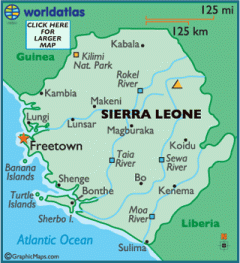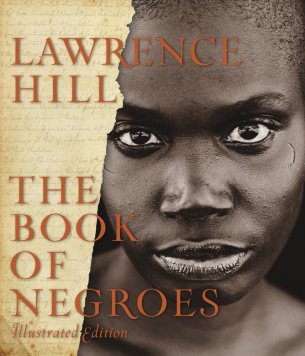Imagine you are stolen from your home. You are kidnapped and taken far away, forced to work for the people of a new land while being mistreated and unpaid. Then, a glimmer of hope reveals itself, and you are given the opportunity to go home and resume your life as previously practiced. You are promised the tools and resources to live there once again and start a community, but once you arrive it is much the opposite. The promises of your previous kidnappers are empty, and they only intend to further strip you and your home of everything that remains. At this time, a spoiler alert is warranted considering this is the life of Aminata Diallo in The Book of Negroes by Lawrence Hill, as she is stolen from her village of Bayo in Africa, forced to work on a South Carolinian plantation, and returned to Sierra Leone for, what she thought would be, resettling.
While reading the final portion of the novel and learning of Aminata’s journey, multiple instances of post-colonial oppression present themselves. An atmosphere of colonial oppression began to take form in my head when I noticed that British Parliament did not have an interest in eradicating slavery or the oppressive nature of the Western world during the 1800s, despite their claims. I noticed this in the novel specifically when Aminata recalled,
“Thomas Peters said he was taking up a collection to travel to England. There, he said, he hoped to speak to members of the British Parliament about the landless Black Loyalists and the perpetuation of slavery in Nova Scotia. None of us imagined that anything would come of it, but contributed what we could. I admired Peters’ determination, and gave him ten shillings. After the meeting, I helped him write the conclusion to what he called his Memorial. “The poor friendless Slaves have no more Protection by the laws of the Colony…than the mere Cattel or brute Beats…and…the oppressive Cruelty and Brutality of their Bondage is particularly shocking, irritating and obnoxious to…the free People of the Colour who cannot conceive that it is really the Intention of the British Government to favour injustice, or tolerate Slavery in Nova Scotia” (Hill 494)
Aminata’s recollection of Peters’ efforts to bring the severity of slavery in Nova Scotia to the attention of the British Government displays how the newly settled colonies in North America were taking advantage of those they saw as below them. This example also helps to illustrate one of the biggest problems with the post-colonial identity, and that is of how the leader of colonies had little control or concern over how individual colonies behaved in their new settlements towards the people that were already living there.

The novel goes onto explain how Aminata is given the chance to travel back to Sierra Leone to build a new settlement. After she accepts the fact that she will probably never see her husband or child again due to their vanishing in Nova Scotia, she agrees. She is promised the resources to create a better life by the British colonies for not only herself, but the people of Sierra Leone. This, however, does not end up being the case as,
“One day, a few hundred of us gathered by the wharf to watch a ship unload. We had been hoping for boxes of hammers and nails, but in the crates we found three hundred clay watering pot” (543)
Aminata and the members of her new community gathered to receive the shipment of the resources they were promised, but instead they received tools to complete jobs for the industrialized British companies that had based themselves on Sierra Leone soil. This clearly displays how colonial oppression was present in The Book of Negroes, and the people of Sierra Leone were rightfully skeptical of the politics of the British colonies.
After these events occur, something occurred that I was not expecting. Aminata, one of the most culturally proud and expressive characters I have ever read of, is questioned of her cultural integrity. Aminata is grouped in with the other Nova Scotian settlers, and the people of Sierra Leone see them all as strange or different. This is clear when Aminata talks with one of the Sierra Leone natives in the following conversation,
Now she lifted the platter up on her head. “We must not let you into our lands.”
“Me?”
“Any of the toubabu from the ships.”
“You call me a toubab? Did you not hear my story about my husband and my children? I am born in this land.”
“That is a story, and a very good one, And I will tell you a story too, if you want one. But you are not asking for a story now. You are asking about my land.”
“I am asking about my land. The land where I was born.”
“You have the face of someone born in this land, but you come from the toubabu. You are a toubab with a black face.” (550-551)
Colonial oppression has left a lasting impression on those of post-colonial lands. Trust issues arise, and Aminata is accused of the very thing that has destroyed the life she knew as a child. The cultural differences between the colonizers and the native people of the novel have drastically different values and social structures, leading to constant conflict and need for control. The British colonizers have the sole intention of making a profit, and doing all that is necessary to ensure that, whereas the native people of these lands want to preserve their current way of life.

Clearly, The Book of Negroes is interesting to examine from a post-colonial perspective, especially in the final events of the novel. Putting yourself into the shoes of the characters of the story has helped in my dissection of the content, and has led to a very fruitful reading experience.
Advertisements Share this:




